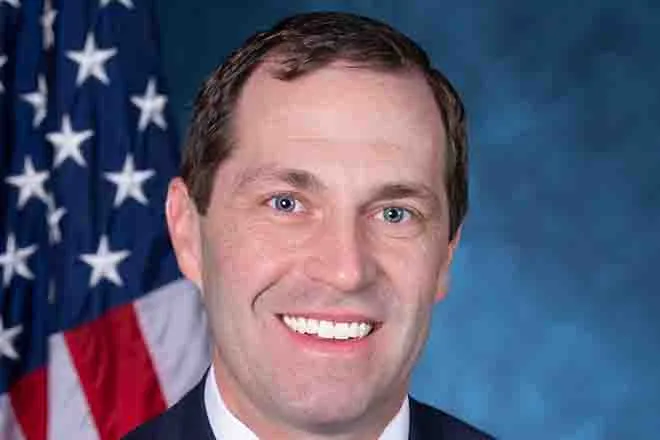
Daily Audio Newscast Afternoon Update - September 3, 2025
© INDU BACHKHETI - iStock-1336427297
News from around the nation.
Appeals Court blocks deportations under Alien Enemies Act; Tennesseans see relief from surprise medical bills but gaps remain; Suicide Prevention Month: NC LGBTQ+ youth at higher risk; Kentucky veteran food assistance at risk under new SNAP changes.
Transcript
The Public News Service Wednesday afternoon update.
I'm Mike Clifford.
A federal appeals court late Tuesday rejected President Trump's attempts to use an 18th century wartime law to deport immigrants he's accused of belonging to a violent Venezuelan street gang.
That from the New York Times.
They report the decision by the U.S. Court of Appeals for the Fifth Circuit in New Orleans was the first time that federal appellate judges had weighed in on the main question of whether Mr. Trump had properly invoked the law, the Alien Enemies Act, as part of his aggressive deportation agenda.
We head next to Memphis, where an anesthesiologist is reminding Tennesseans about protections under the federal No Surprises Act.
The law shields privately insured patients from unexpected bills when treated by out-of-network specialists.
Dr. Blake Daniels with NAPA notes patients usually have no choice in providers, such as anesthesiologists or ER doctors.
Before the No Surprise Act, many scheduled procedures at in-network facilities, but still ended up with unexpected bills from out-of-network specialists, such as radiologists or anesthesiologists.
Daniel says he's fully supportive of protecting patients from surprise medical bills.
As an advocate for patients, fair billing and patient access are critical, but they can't come at the expense of our health care providers.
We need to ensure payment mechanisms are also fair and don't put additional stress on our hospital system and impair our ability to recruit and retain the doctors and nurses our community needs.
Danielle Smith reporting.
And September is National Suicide Prevention Month.
LGBTQ youth in North Carolina and around the country are finding it harder to receive support because of a move by the Trump administration.
In July the Substance Abuse and Mental Health Services Administration removed the press 3 option from the 988 suicide and crisis lifeline which sent people to a hotline that specializes in supporting LGBTQ Sarah McHale is CEO of Time Out Youth, the only LGBTQ community space in Charlotte.
The organization provides support for therapy and housing.
She says there's already anxiety among young people about the Trump administration, and cutting the press three option will only make matters worse.
They hear the person who leads this country cutting funding for something that is directly connected to saving their lives.
So it continued to send the message of we don't actually care if you exist or not.
I'm Eric Tegethoff reporting.
Meantime, the Trump administration's changes to the Supplemental Nutrition Assistance Program, or SNAP, mean that Kentucky veterans will have to prove they're working, looking for work, or volunteering to keep their benefits next year.
Jessica Klein is with the Kentucky Center for Economic Policy.
When people have to do this additional paperwork on a monthly basis, what that does is really make it harder to keep those benefits over time.
Proof of working 80 hours a month of participating in job training will be required to continue receiving SNAP beyond three months.
This is public news service.
And next we head to Illinois where a nonprofit is working to connect farmers to healthcare systems as part of an effort to advance a food as medicine model for healthcare.
Think Regeneration in Kelowna is helping more than a hundred farmers in the organization build relationships with healthcare institutions including hospitals and clinics.
Ryan Slabough with Think Generations says the farmers work with doctors to prevent chronic disease and support patients through nutrition-based interventions.
We can take some of that money and put it back into the local communities of farming and food.
We see the ripple effects happen economically as well as the positive health outcomes, which are obviously the big priority.
The organization's work is based on emerging science showing connections between soil health, plant nutrition and human health.
Slabaugh says improved diet and nutrition has been shown to significantly improve health conditions like type 2 diabetes.
I'm Judith Ruiz, Branch Reporting.
And students in rural Ohio are getting hands-on lessons in science and technology.
That's thanks to the Ohio 4-H mobile design classroom.
The 35-foot bus is traveling to schools, fairs and libraries to help bridge the state's digital divide.
Christy Milhouse, a 4-H STEM educator with Ohio State University Extension, says the classroom exposes young people to opportunities they might not otherwise have.
The exciting thing about our mobile classroom is that it's a way to not only take OSU out into communities all over Ohio, but it's also a way to take 4-H out and introduce young people to maybe a different side of the 4-H program.
About one in three households in Appalachian, Ohio lack reliable internet access, according to Connecting Appalachia.
Advocates say the gap leaves many young people at a and careers.
Farah Siddiqui reporting.
Finally, this year marks the 90th anniversary of Social Security, which has helped generations in states like Wyoming retire with dignity after a lifetime of hard work.
The program created during the Great Depression provides retirement, disability, and survivor benefits to more than 69 million Americans.
AARP Wyoming Associate State Director Tom Laycock says Social Security lifts 30,000 Wyoming seniors out of poverty every year.
Nearly one in five people in the state rely on the program for 90 percent of their income.
Social Security's never missed a payment in the last 90 years.
The concern is we know if Congress fails to act by 2034, millions of Americans will see their earned benefits cut by about 20 percent.
And we are asking Congress to look into ways to keep Social Security strong.
Social Security trustees project that Congress will need to make adjustments, as it has done in the past, within the next decade to maintain current benefit levels.
Removing a tax cap on top earners would be one way to ensure the program's solvency.
Currently, workers only contribute payroll taxes on the first $176,000 earned in a year.
I'm Eric Galatas.
This is Mike Clifford for Public News Service.
Member and listener supported.
Find our trust indicators at publicnewsservice.org.















